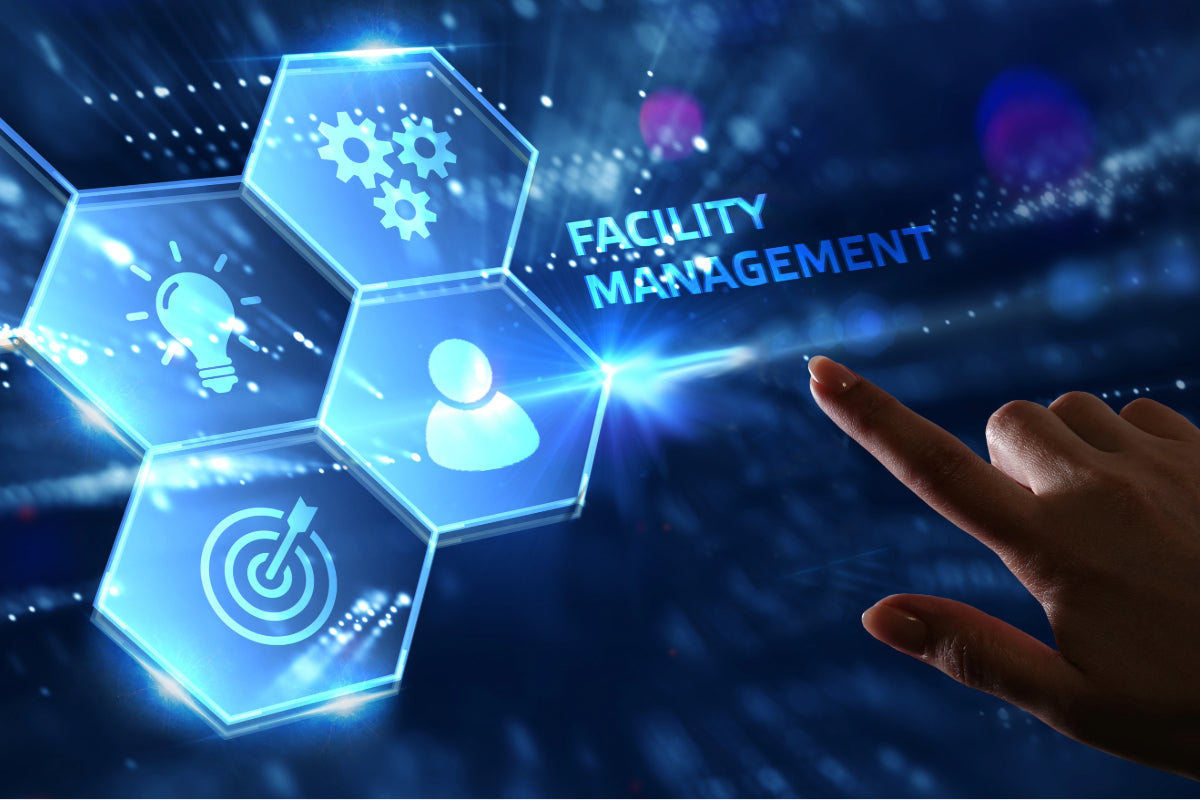By TJ Grim, Ready 2 Respond Trainer
Facilities professionals juggle a wide range of responsibilities, including technical, strategic, and interpersonal tasks. Mastering core skills across these areas not only improves day-to-day performance but also prepares teams to respond effectively to emergencies.
Below are four categories of essential skills that, when developed together, form the foundation of resilient, high-performing facilities leadership.
1. Managing People and Processes
Effective facilities management starts with leadership that inspires trust and action.
- Leadership and Team Management: Facilities managers must effectively manage diverse teams, delegate tasks, and address conflicts. Whether it's coordinating a planned construction project or managing water damage response, team leaders must make quick decisions and support staff in carrying out their roles. To build trust and efficiency, focus on fostering a supportive work environment where team members are equipped with the proper training and feel empowered.
- Communication Skills: Clear communication bridges gaps among teams, vendors, and stakeholders. Facilities managers must often convey complex issues to diverse audiences and work to minimize misunderstandings to ensure seamless operations. From cross-departmental briefings to vendor negotiations, communication must be clear, prompt, and adapted to various audiences.
Knowing how to coach the facilities team members to become better communicators is also a critical skill, especially in preparing first responders to take the lead in reporting issues, actions, and status during such events.
2. Navigating Emergencies and Uncertainty
Facilities managers are often the first responders when things go wrong – these skills help maintain control and drive recovery.
- Problem-Solving and Analytical Thinking: Unexpected challenges are part of the job, whether it’s a burst pipe or a system failure. Analytical thinking enables the identification of root causes and prioritization of solutions under pressure. For example, diagnosing the source of water intrusion – and stopping it quickly – drives success, significantly limiting damage and disruption. Analyzing data and past patterns can also help in developing and adjusting standard response protocols.
- Adaptability and Crisis Decision-Making: Facilities management often involves unpredictable scenarios, and the ability to act decisively under pressure is vital. Practicing decision-making exercises with your team and learning from past emergencies can help develop confidence in high-pressure response situations.
- Knowledge of Regulations and Risk Management: Staying informed on compliance guidelines – especially those related to air quality, moisture remediation, and worker safety – can help mitigate liability during and after a water event. Continuous education in this area is crucial.
3. Technical Proficiency and Planning
Maintaining the safety of buildings and ensuring that systems function properly require both technical expertise and strategic planning.
- Building Systems Knowledge: A working knowledge of HVAC, plumbing, and structural systems helps facilities managers ask the right questions and guide contractor work. Understanding these systems facilitates the diagnosis of issues and effective communication with technical teams. It’s essential to stay current on certifications and employ hands-on training programs to ensure that knowledge remains up-to-date.
- Technology and Data Use: Tools like CMMS, remote monitoring sensors, and Bluetooth-enabled drying equipment support more thoughtful responses and reduced downtime. Emerging technologies, such as AI, are further revolutionizing the field with predictive maintenance and energy efficiency solutions. Staying ahead of tech trends sets facilities leaders apart.
4. Strategic Oversight and Growth
Long-term success in facilities management relies on thoughtful planning and professional development.
- Budgeting and Resource Allocation: Allocating funds for training, equipment upgrades, and emergency resources pays off during critical incidents. Conversely, poor financial oversight can derail projects or lead to overspending. Strategies such as prioritizing cost-effective solutions and leveraging budgeting software can help streamline expenses while ensuring high-quality outcomes.
Facility managers need to become adept at advocating for the right long-term financial decisions with executive-level leadership. For example, the facility manager is in the best position to understand the return on investment that justifies equipping and training the facilities team to manage water events in-house.
- Contract and Vendor Oversight: Maintaining reliable vendor relationships can greatly improve response efficiency when an emergency occurs – which is why facilities managers must be well-versed in contract negotiation and vendor performance oversight. Digital tools that track vendor performance or contract deadlines are invaluable in maintaining seamless operations.
- Project Management: Facilities projects often encompass multiple moving parts, including detailed timelines and complicated budgets. Tools like Gantt charts or project management software can help organize tasks efficiently. Certification programs in project management can be an excellent step to sharpen this skill.
Bringing it into Practice
Mastering facilities management requires more than just technical know-how. It requires leadership, adaptability, and a deep understanding of systems and people. Focusing on these core skill categories will enhance emergency response capabilities, help protect buildings, maintain operations, and reduce costs – regardless of what comes your way.
Contact the R2R team for assistance with emergency response planning and tailored team training. For facility management tips, follow us on LinkedIn and subscribe to our Facility Insights newsletter.


10 Common Water Damage Risks on College Campuses
The Power of Inclusive Communication